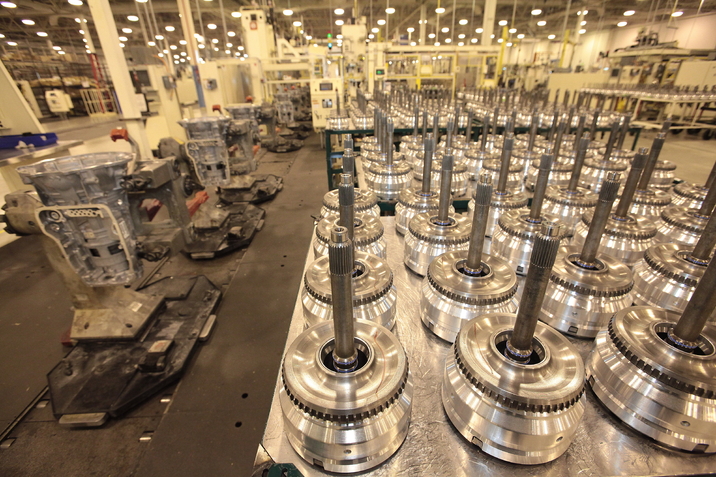 OTTAWA—Ontario’s key auto assembly and parts industry will have a difficult time recovering to its previous glory days, says a new research paper, and it has little to do with the aftermath of the recession.
OTTAWA—Ontario’s key auto assembly and parts industry will have a difficult time recovering to its previous glory days, says a new research paper, and it has little to do with the aftermath of the recession.
The paper from Royal Bank economist Josh Nye notes that almost five years into the recovery, the sector has yet to fully bounce back, languishing well below pre-slump levels in almost all areas, from production, exports and jobs, to particularly critical investment.
Overall, the sector is still 15 per cent below pre-recession levels in terms of shipments and has recovered only about 8,300 of the 43,400 jobs lost between 2007 and 2009, making it one of the worst performing manufacturing industries.
This despite the fact motor vehicle sales have rebounded strongly, hitting a record 1.8 million in Canada last year and a strong 15.9 million in the United States.
The problem, says Nye, is not so much the recession hangover but what appears to be a shift in North American production to Mexico and the so-called “right-to-work” states in the southern U.S.
Investment in Canadian facilities has slowed to a crawl, with the total in 2013 only about a third of what it was in 2007.
Low labour costs, proximity to Latin American markets and government incentives have been critical, Nye said, leaving Canada in the back seat in terms of future production.
And the North American Free Trade Agreement (NAFTA) has not helped.
He noted that Mexico’s share of North American production has tripled to about 20 per cent from 1994, while Canada’s flattened at around 17 per cent initially but in recent years has begun to fall to a record low 14 per cent last year.
Planned new plant capacity in Mexico will likely speed up the erosion.
“It’s not optimistic. We are not getting the investment we were getting before the recession, so I think we’re going to run into capacity issues that will prevent us from taking advantage in the strong growth in sales,” he said.
The conclusion coincides with a report from unio economist Jim Stanford earlier in the week that also warned of difficulties ahead for the sector because of increased competition, in that case from Europe, South Korea and Japan due to the removal of import duties from trade agreements already signed or being negotiated.
Stanford’s fear was that the argument for locating production facilities in Canada was slowly being eroded and that automakers might look elsewher.
His prescription was that the Canadian government insist foreign automakers locate production facilities in Canada in return for duty-free access to the Canadian market.
RBC’s Nye sees some positives, including the depreciation in the value of the Canadian dollar by about 10 per cent from parity, expected strong sales in both Canada and the U.S., and some moderation in Canadian auto sector salaries.
As well, business investment intentions suggests a pickup in 2014 in the vehicle assembly sub-sector, although a survey predicts a further 14 per cent decline in the parts and a 29 per cent dro in the truck body and trailer manufacturing facilities.
“But if capital spending remains at recent lows, Canada’s auto industry will likely continue to cede production share to Mexico and the southern U.S.,” he said.




